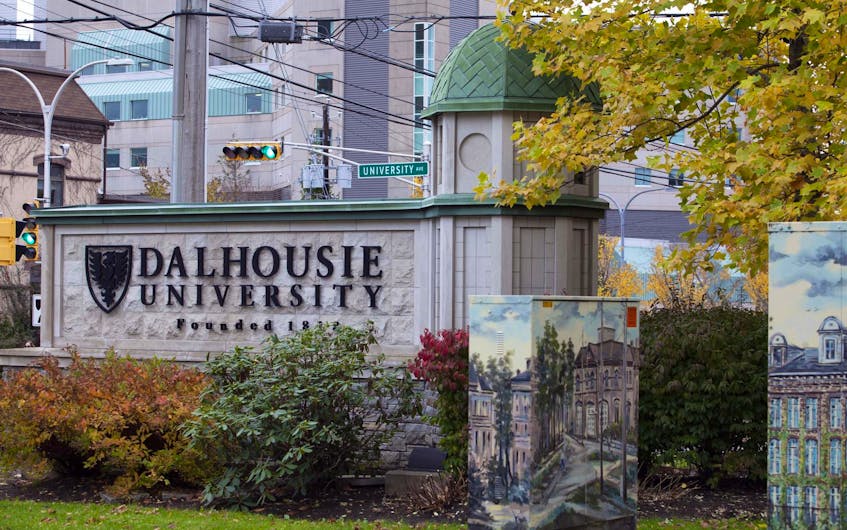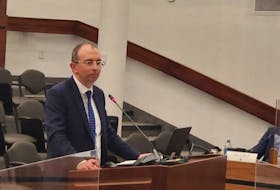A program that puts Dalhousie university medical students in rural Nova Scotia settings for their entire third year of schooling has been expanded to the South Shore.
Starting in September, five students will start their hands-on training in Bridgewater, Lunenburg and Liverpool during a 48-week term.
Usually, third-year students do their clerkships with short placements in various communities. The full-year program was first tried in Nova Scotia last September in Cape Breton, but Dalhousie first introduced it in New Brunswick in 2012.
The program is designed to get students into smaller communities to see what it's like to practise in that kind of setting, and hopefully consider those kinds of locations when they're ready to set up their own practice.
Health and Wellness Minister Randy Delorey said following the announcement Tuesday morning in Bridgewater that there has been good feedback from those involved in the Cape Breton project.
The medical school takes the lead in the project, finding mentor physicians for the students. The school's goal is to have one-third of its medical students take part in the clerkship program around the province, over the next four years.
“At this point we're pleased with the progress in Cape Breton, people are very excited down here on the South Shore,” Delorey said.
He said that the earlier a medical student is exposed to opportunities like family medicine and rural practise, it increases the likelihood that they will follow that career path, and the program is meant to work with other initiatives like increased remuneration for doctors and recruitment of internationally trained doctors to address doctor shortages in rural areas.
Year-long learning also lets the students follow patients for a year, instead of just through a short period. Delorey said.
“That's the clinical learning value that comes from this.”
The province is putting $130,000 toward the project, which is primarily for administrative costs.
The Health Services Foundation of the South Shore, South Shore Regional Hospital Auxiliary and Queens General Hospital Foundation will provide funding to make necessary upgrades to both South Shore Regional and Queens General Hospitals to prepare for the clerkship program.
Dal student Emily Rogers is a Bridgewater native who will part of the South Shore program. She said when she started her schooling, staying in the province was part of her plan.
“I'm definitely interested in staying in Nova Scotia, there are a couple of areas I'm considering, but Bridgewater would be top of the list.”
She said staying in one place for the third year is a good thing.
“I think it will be really great to follow patients over the course of 48 weeks, to see the effects different medications have on them, or to see people who go through an entire pregnancy and see the continuity of her care,” she said.
Two of her friends are in the program in Cape Breton, she said, and they are enjoying how it's going.
Dr. Darrell White, the senior associate dean at Dalhousie's medical school, said students typically did several stints of four to eight weeks at different locations during their third year, mostly in the Halifax area.
He said if not for the programs that put students in rural settings, most would otherwise be urban-trained.
“The benefit is that you get trainees ... that would consider going to smaller communities,” he said.
He said it's also a better experience for the students.
“When it started in New Brunswick, it really wasn't in response to a shortage (of doctors) in communities,” he said. “I think there's an education benefit as well, but it so happens that we also have this need in Nova Scotia. At the medical school, we have to be aware and responding to the needs of where we work and who we deal with.”
He said the program can also help with retention efforts in rural communities.
“For the family doctor working in a smaller community there's some variety, and if you like to teach it's a good opportunity to work with young medical students.”
He said the school is currently in discussion to find a location where students can go in September 2021.









